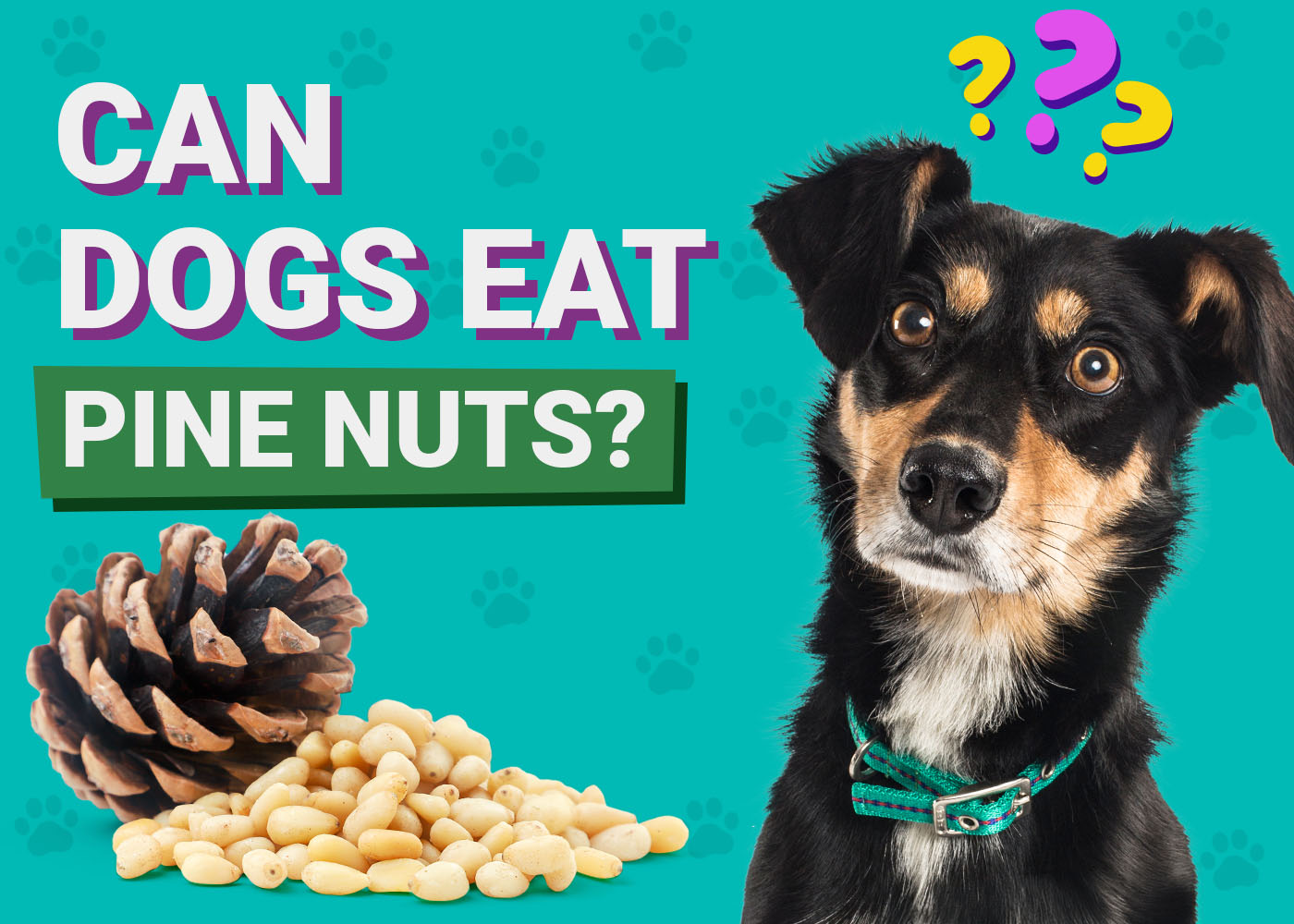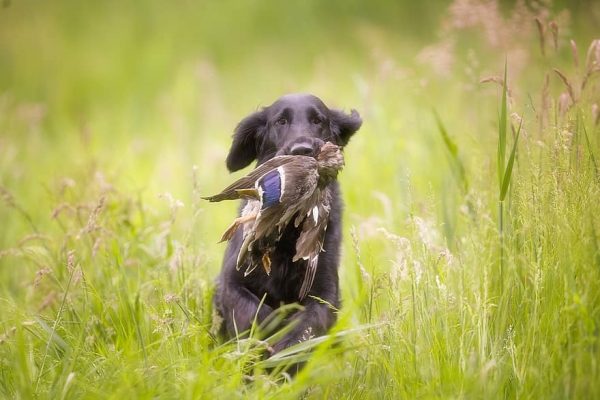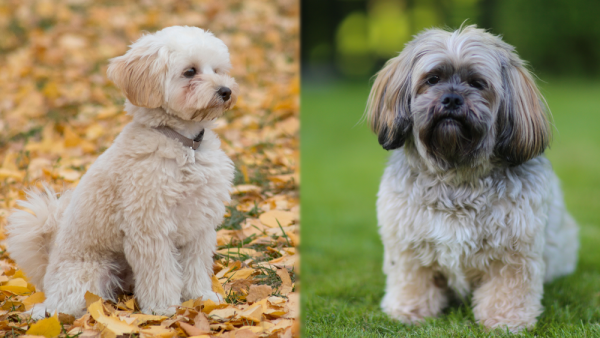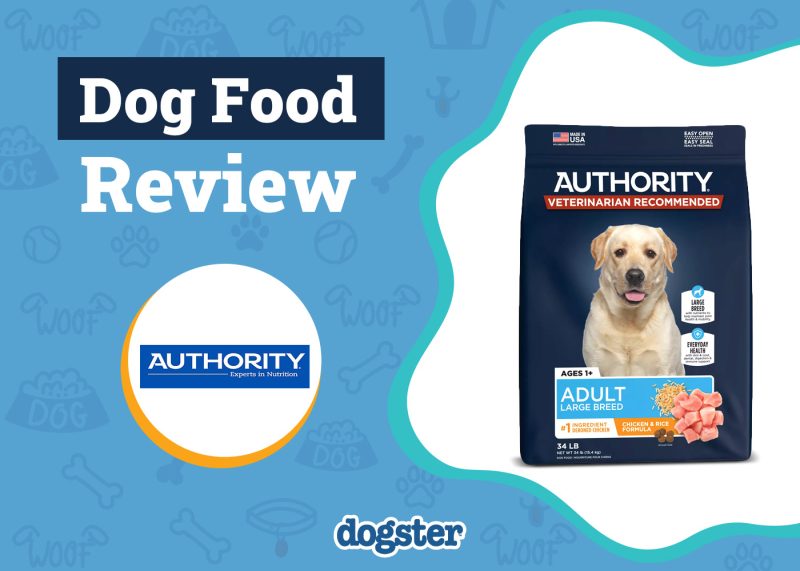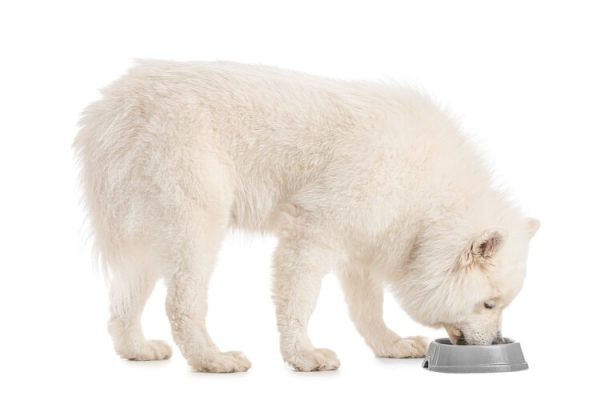There are many pieces of misinformation floating around the web on what is and is not safe for your canine companions. One of these very topics might have to do with pine nuts. Are pine nuts toxic to dogs? No, they are not toxic, and most dogs can eat a small amount of pine nuts without issue. However, they cause significant problems for certain canines especially if eaten in large amounts. In this article, we’re going to go over exactly what about pine nuts might be problematic and which dogs suffer from these potential complications.

Can Dogs Eat Pine Nuts?
Pine nuts, contrary to their name, aren’t really nuts at all. They are actually highly nutritionally beneficial seeds that are found, as the name suggests, in pinecones.
Pine nuts contain a number of beneficial nutrients that make them tasty and relatively healthy additions to many of our meals, and our dogs can potentially benefit from them too. But, just like with humans, moderation is important when it comes to feeding our dogs anything that isn’t part of their standard diet.
Below, we’re going to go over both the benefits and the negatives of pine nuts for dogs.

Benefits of Pine Nuts for Dogs
Pine nuts have an array of benefits, as they contain very essential vitamins and minerals that aid in health. Here are a few ways that pine nuts benefit dogs.
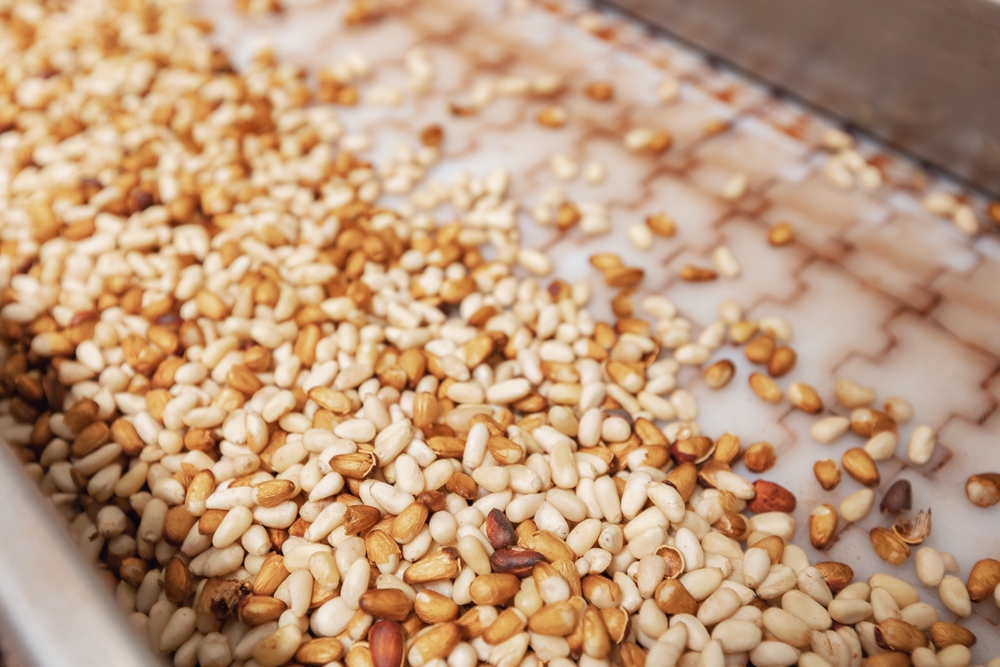
1. Anti-inflammatory Properties
Pine nuts contain pinolenic acid, or PLNA, a type of omega 6 fatty acid that may have anti-inflammatory properties. Going without this particular fatty acid can reduce your dog’s risk of developing certain health issues such as arthritis, diabetes, and other inflammatory disorders.
2. Promotes Heart Health
Pine nuts contain unsaturated fats, plant sterols, magnesium, L-arginine, and vitamin E that help heart health. These components help raise good cholesterol and lower bad cholesterol. With helpful minerals like magnesium, they also work to protect the heart.
3. Improves Blood Sugar Levels
Pine nuts can slow carbohydrate absorption, which can in turn positively impact glucose homeostasis. They contain a variety of fiber, protein, and fat which helps the blood sugar stabilize.
4. Brain Function Improvement
Pine nuts also contain omega-3 fatty acids, antioxidants, and manganese, all of which improve overall brain function.

Risks Related to Pine Nuts
Now that you know the benefits associated with pine nuts, it is equally important to understand the risks. Just because pine nuts are non-toxic to dogs, it doesn’t necessarily mean that we should allow them to eat as many as they want. And just like with humans, there is a (small) risk of an adverse reaction,especially if they have a health condition.
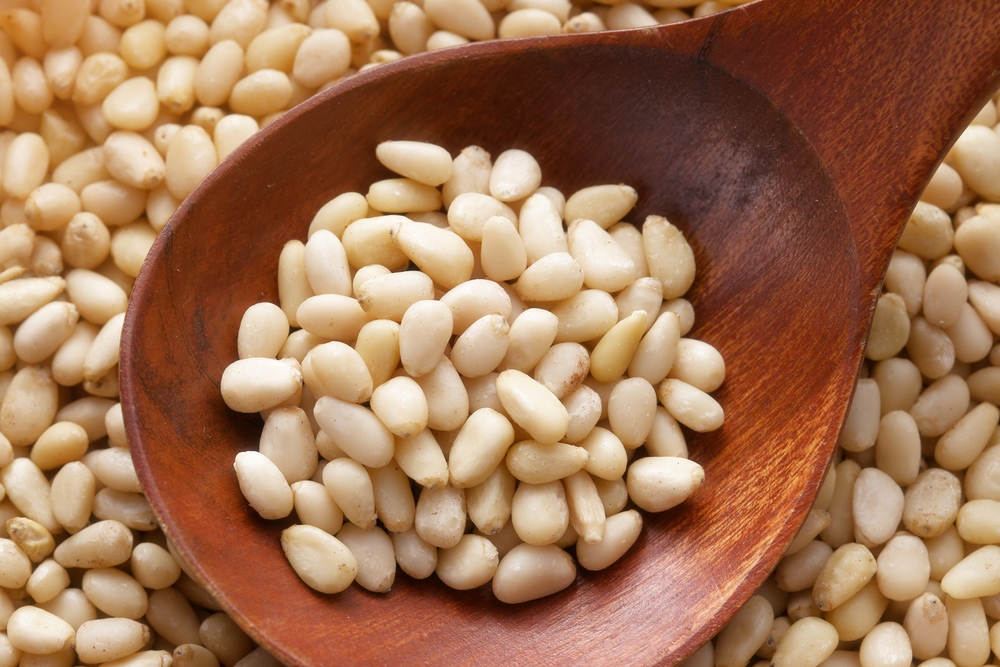
1. Phosphorus Content
Pine nuts contain a very high amount of phosphorus. While phosphorus is an important nutrient for dogs in small quantities, it can adversely affect them if they have too much.
While a moderate amount of pine nuts can actually reduce inflammation in the body, too much can negatively impact the urinary tract, leading to kidney stones and inflammation, especially for dogs with previous renal issues.
Because of this, pine nuts are often not advisable for dogs with pre-existing kidney or urinary tract issues.
2. Fat Content
Pine nuts, and any nuts for that matter, are high in fat. Your dog already gets the amount of fat they need in their regular diet, so they really shouldn’t be fed too much extra. Too much fat can lead to weight gain and obesity over time, as well as issues such as pancreatitis.
3. Allergic Reaction
There’s always a (small) possibility when introducing anything new to your dog that they will have an allergic reaction. If your dog develops any signs of an allergy, it is in their best interest to discontinue use immediately.
Depending on the severity of your reaction, it may or may not warrant a vet visit, but it is always advisable to get some advice.
- Gagging
- Hives
- Diarrhea
- Vomiting
- Pale gums
- Facial swelling
- Weakness
- Tremors
4. Gastrointestinal Upset
When introducing any new food to your dog’s system, there is always a chance of gastrointestinal upset. Dogs can be very disrupted, even with something as simple as a switch of dog food.
So, if your dog has too many pine nuts in one sitting, it can cause a lot of GI symptoms like nausea, vomiting, or diarrhea.
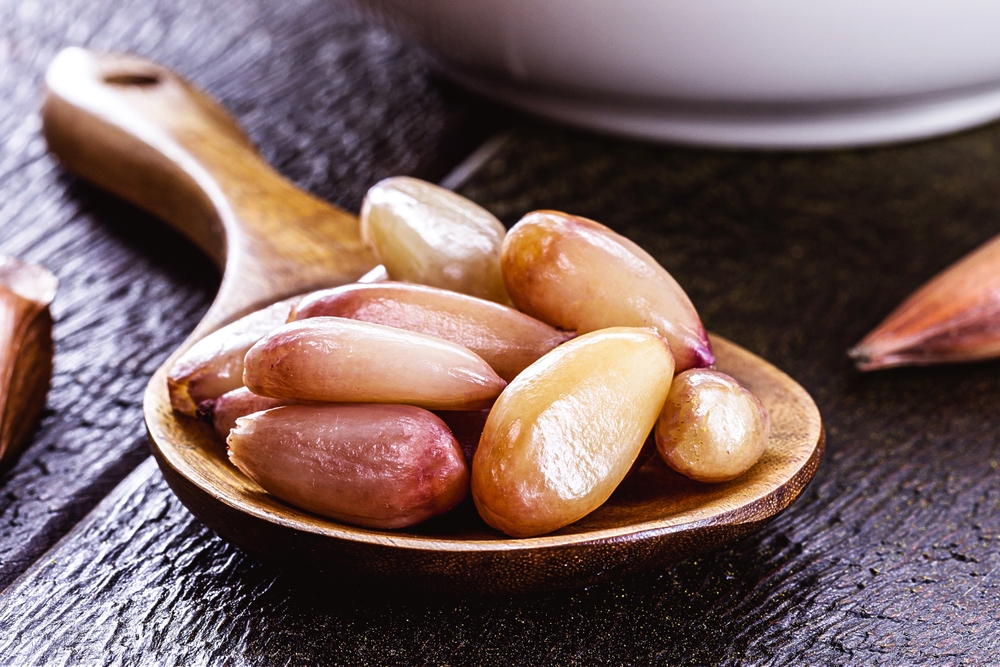

How to Serve Pine Nuts to Dogs
If your dog sneaks a few pine nuts off the floor, it shouldn’t cause them any problems. But before giving your dog any new supplement or food item regularly, it is important to ask the professional that deals with them on a regular basis.
There might be various reasons why your vet might not recommend pine nuts for your dog. However, it’s always best to double check just to make sure you’re doing the right thing. Pine nuts are not a necessary food item for your dog, and therefore should not be considered essential.
If your vet does give you the OK to give your dog pine nuts, they will advise you on the appropriate portions, as it will depend on your dog’s size and any health conditions they might have, but we wouldn’t recommend more than a small sprinkling.
Raw pine nuts are safe, but can be quite difficult to break down in the gut, meaning they are likely to pass through without being digested or providing any benefits. Cooking them reduces the nutritional value, but a very light roasting can increase their digestibility without taking away too much of the benefits.

Conclusion
Now you understand the benefits and risks of feeding your dog pine nuts. You can see that there are some health benefits to be found from eating these tasty treats, but that doesn’t mean you should start filling your dog’s bowl with them. A little sprinkling now and then should be safe, but always check with your vet before feeding your dog anything new.
If you plan on feeding your dog pine nuts, your vet might want to do a quick evaluation so they can okay it and give you the correct amount based on your dog’s health and weight.
See Also:
- Can Dogs Eat Pizza Rolls? Vet-Verified Nutrition Facts & Concerns
- Can Dogs Eat Spaghetti Sauce? Vet-Verified Nutrition Facts & Better Alternatives
Featured Image Credit: Buntovskikh Olga, Shutterstock

